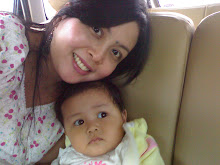Feeling down?
| Can't stop crying? Worried that you don't love your baby? It's normal to feel emotional in the days and weeks after you have a baby, as your hormones are still settling down after a tumultuous few months. There's even a phenomenon known as the baby blues, which causes up to 80 per cent of new mothers to feel teary and tired for a couple of days about three or four days after the birth. But there's another kind of blues that affects about one in every 10 new mums. It's called post-natal depression (or postpartum depression), and it usually strikes between one and three months after the birth, sometimes lasting for months. Much less common is a third type of depression, called post-natal psychosis. This is a serious medical disorder characterized by psychotic behavior such as delusions, hallucinations and even a desire to harm yourself or your baby. It requires immediate medical diagnosis and treatment, but has a very good recovery rate. It's not known exactly why some mothers suffer from post-natal depression, although statistics show that you're more likely to experience it if you had a difficult birth experience, if you haven't got much support with your new baby, if you've previously had an abortion or stillbirth, if the pregnancy was unplanned, if you and your partner are having relationship problems or if you've previously experienced depression. It's likely that the demands and stresses of new parenthood, including broken sleep and a new sense of responsibility, also contribute. |
Warning Signs
| Here are some warning signs to watch out for:
If any of these sound familiar to you, see your doctor as soon as you can - and not just for your own benefit. Some research suggests that children of mothers with post-natal depression may suffer from delayed mental and emotional development. But the good news is that treatment is available and is usually highly successful. It is likely to include counseling and psychotherapy, and in some cases may also include antidepressant drugs. In the meantime, tell your friends and family how you're feeling and don't be afraid to ask them for help so you can get some time to yourself and rest as much as possible. Sharing your experiences with a support group, whether online or in person, may also help. |

No comments:
Post a Comment